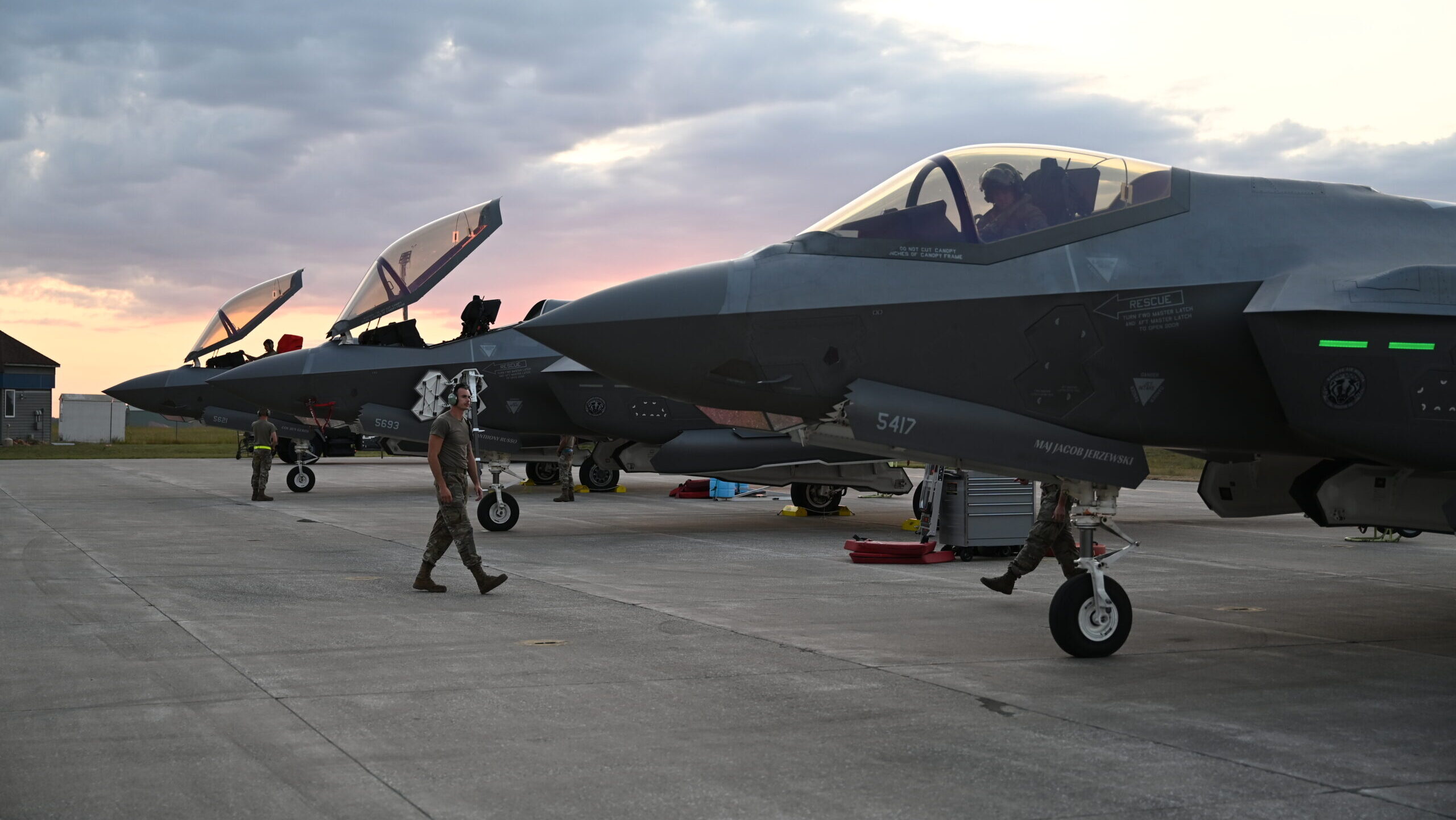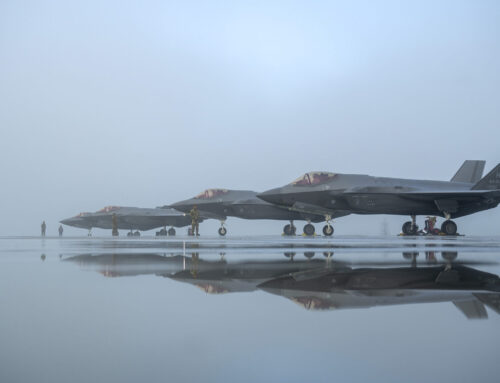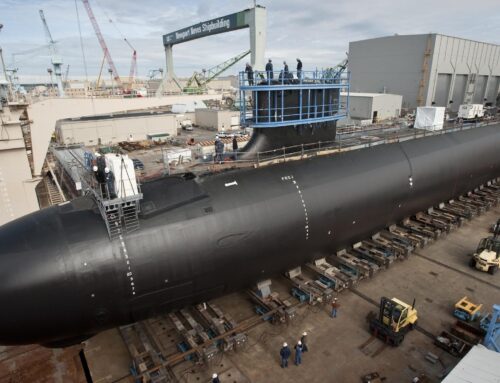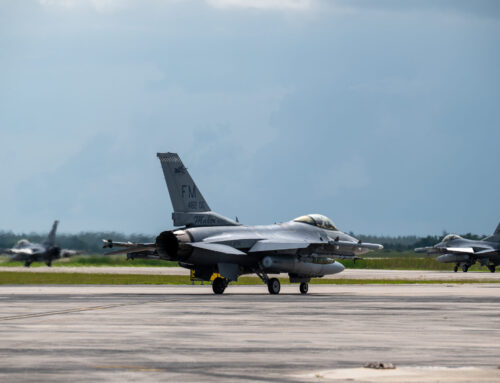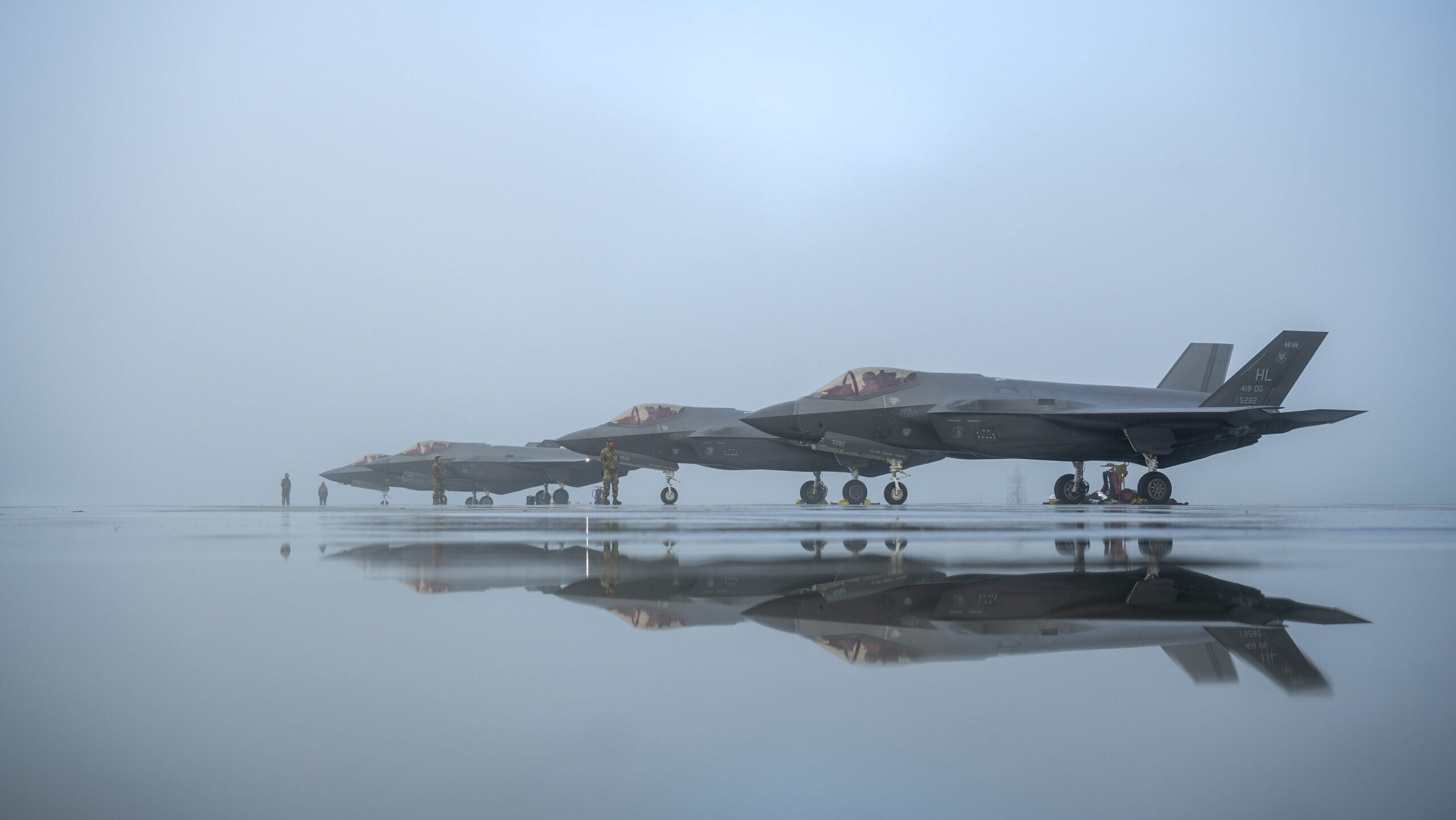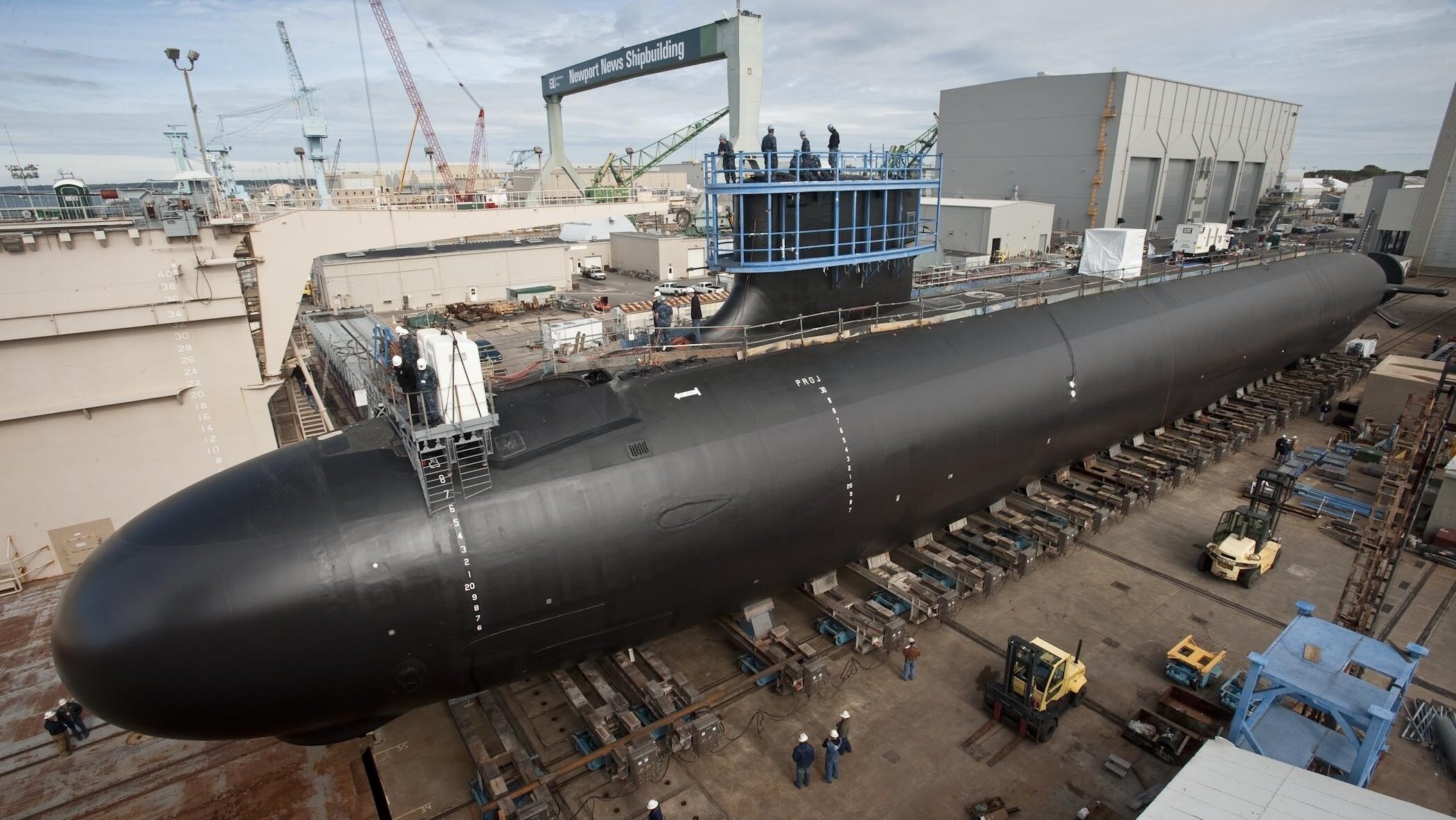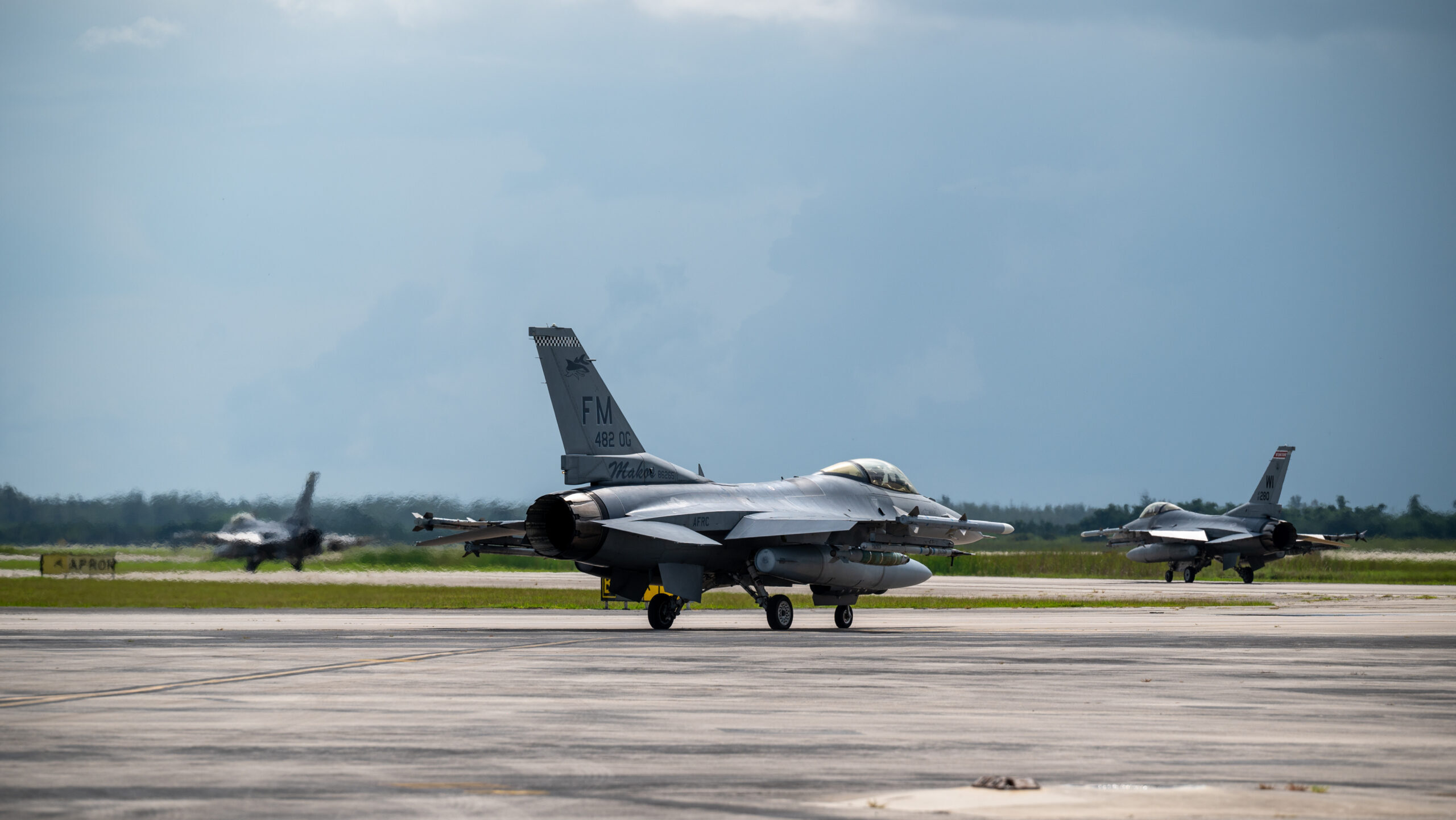Airmen assigned to the Wisconsin Air National Guard’s 115th Fighter Wing complete post-flight inspections on U.S. Air Force F-35A Lightning II aircraft Aug. 13, 2024. (U.S. Air National Guard photo by Airman 1st Class Josh Kaeser)
WASHINGTON — Lockheed Martin and the Pentagon are unlikely to reach a deal on the next lot of F-35 stealth fighters by the end of this month, potentially leading to a $1 billion cost “impact” for the defense giant this quarter, a top Lockheed executive said today.
“Given where we are in that negotiation, we don’t expect to be completed by the end of this quarter, and that will cause an impact in the quarter — up to about $500 million in sales, and potentially about $500 million of cash flow in the quarter,” Chief Financial Officer Jay Malave said during the Morgan Stanley Laguna conference.
The Pentagon’s F-35 Joint Program Office (JPO) and Lockheed have been engaged in talks over F-35 Lots 18 and 19 for more than a year, and had initially hoped to wrap up contract negotiations by the end of 2023. However, there are still “key terms that are yet to be negotiated” by the parties, which will drag discussions out into the fourth quarter, Malave said.
Lockheed is currently seeking a cash injection, as the department’s initial funding for Lot 18 has “pretty much been exhausted,” and the company has already invested some of its own funds to keep F-35 production running smoothly ahead of the contract, he said.
“We’re working with our Joint Program Office partners as well as with congressional constituents so that we can get some funding in so that we don’t really disrupt the production system,” Malave said, adding that the money could come in the form of reprogrammed funds approved by Congress.
Overall, Lockheed’s latest financial guidance estimates sales between $70.5 billion and $71.5 billion this year, with free cash flow for 2024 between $6 billion and $6.3 billion.
As part of the latest round of F-35 contract negotiations, the department is currently reviewing pricing information submitted by Lockheed that breaks down the costs borne by the aerospace prime and its supply chain, said Malave, who acknowledged that the company is still struggling with inflation, high labor costs and extended lead times. The Joint Program Office did not immediately respond to an off-hours request for comment.
“They have to go through that, get comfortable with that, make sure the data supports what we provide to them,” he said.
Greg Ulmer, the top executive at Lockheed’s aeronautics unit, previously told Breaking Defense that unit costs for the upcoming batch of F-35s could continue to be negatively influenced by inflation as well as a lower annual buy rate from the US military.
On top of the costs associated with contract negotiations, Lockheed expects up to $300 million in impact this year due to financial withholdings the Pentagon is making as it accepts F-35s that are being delivered without a full hardware and software upgrade known as Technology Refresh 3, or TR-3.
In August, the Pentagon acknowledged it was withholding about $5 million per jet. However, Malave said that number will be reduced as Lockheed achieves specific targets.
“We expect to complete some of those milestones this year,” he said, adding the withholdings will determine where Lockheed lands on free cash flow.


